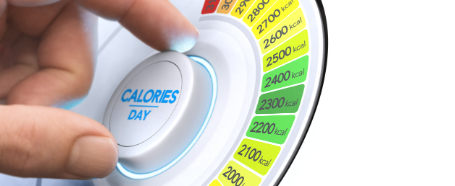Calories and Losing Weight.
Lets start by tackling a concept that’s key to weight loss:
Calories.
Now, what’s a calorie? Simply put, it’s a unit of energy that our bodies use to function. But when it comes to weight, calories become much more than a unit of measurement; they’re the particles in the grand equation of weight management.
This isn’t just about how many calories you eat; it’s also about how many you burn. The weight loss formula often boils down to ‘calories in versus calories out’. To lose weight, you must consume fewer calories than your body expends. But how do you know how many calories you need? Well, that hinges on various factors such as age, sex, weight, height, and physical activity level.
You’re going to find out about different methods to estimate your daily calorie needs for weight loss in this section. It’s about hitting that sweet spot where you reduce enough calories to shed pounds, without going so low that your body thinks it’s in a famine.
Why focus on a balanced diet in all this? Because it’s not just the quantity of calories that matters, but the quality. Choose something that resonates with you and your lifestyle to make calorie counting sustainable and effective. Ensuring you have a balanced intake of carbohydrates, proteins, and fats can help you feel full, nourished, and energetic, despite a calorie deficit.
I’ll lead you straight into how to master calorie counting with practical tips, after covering all the basics that set the stage for a successful weight loss journey.
The Art of Counting Calories: Practical Tips for Success
Let’s look at some practical tips that are going to help you count calories effectively. Counting calories isn’t just about keeping track of numbers; it’s about understanding what’s behind those numbers and making smart food choices.
to start with let’s talk about the tools of the trade. You’re going to find out that smartphone apps and online tools can be lifesavers. Many of these apps have extensive databases with nutritional information for a vast array of foods, including dishes from popular restaurants.
Measuring food portions can be tricky, but I’m here to help you with that. You can use tools like measuring cups, food scales, or even visual comparisons to common objects to get a sense of portion sizes. For instance, a serving of meat should be about the size of a deck of cards.
Next up, reading nutrition labels is crucial. They give you a complete breakdown of the calorie content along with fats, carbohydrates, proteins, and other nutrients. Pay attention to serving sizes because what looks like a single serving might be two or three servings in disguise.
Lastly, when you’re eating out, don’t stress too much. Many restaurants now provide calorie counts on their menus. If they don’t, you can always estimate and adjust your approach down the road. Choose something that resonates with you: a dish with lean proteins, vegetables, and whole grains is usually a good bet.
Integrating Calorie Counting Into a Healthy Lifestyle
So you’ve gotten the hang of counting calories, but that’s just part of the weight loss journey. It’s time to talk about how to make this habit sustainable and holistic. You’re going to find out about maintaining nutritional balance, making exercise a friend, and keeping your mind happy while your body sheds pounds.
Counting calories doesn’t mean you should ignore the quality of food you eat. Choose something that resonates with you when it comes to nutrition. Balancing your macronutrients – that’s proteins, carbs, and fats – is crucial. Your body needs all three to function optimally, even when you’re aiming to lose weight.
Combining your diet with regular physical activity can boost weight loss and improve overall health. This doesn’t necessarily mean hours at the gym; even a daily walk or some at-home exercises can make a big difference. It’s about finding what works for you and staying consistent.
Get a FREE calorie counting chart here
“Calorie counting charts free”
Reducing Calorie Intake.
Reducing calorie intake can sometimes lead to feelings of not eating enough. To avoid this, it’s important to try to enjoy your meals. Focus on the flavors, and remember, occasional treats are fine – they won’t derail your progress. A balanced approach to food keeps morale high and sustains your weight loss efforts.
There’s another aspect that’s often overlooked – the psychological side of losing weight. Counting calories can become an obsession, and that’s not healthy. Instead, use calorie counting as a tool for awareness and making informed food choices. Remember, this is a journey, not just a numbers game.
I know a lot of people worry about hitting a weight loss plateau. It’s not uncommon, and it’s a sign that you’ve made significant progress. Your body’s needs change as you drop pounds, so adjusting your calorie intake or activity levels might be necessary to keep losing weight.
But don’t worry too much about it right now – we’ll dive deeper into overcoming such challenges in the next section.
Overcoming Common Challenges in Calorie Counting
Counting calories isn’t always smooth sailing; sometimes, you’ll hit a weight loss plateau or find social events testing your resolve. But don’t worry too much about these roadblocks—they’re a normal part of the journey. Learning to navigate these challenges is key to maintaining your weight loss momentum.
If you find your weight loss stalling, it might be time to reassess your daily calorie intake. As you lose weight, your body requires fewer calories to function, so what worked initially might need adjustment. Remember, your first attempt doesn’t need to be your last—you can always tweak your approach.
Social gatherings and dining out can pose a challenge when you’re keeping a close watch on calories. But choose something that resonates with you—opt for healthier options or plan for a higher-calorie meal by adjusting your intake for the day. Open communication with friends and family can also garner support for your goals.
Lastly, it’s important to separate fact from fiction. There are many myths surrounding calorie counting and weight loss. Whether it’s the idea that certain foods are ‘negative calorie’ or misconceptions about the timing of meals affecting weight, a fact-checked approach will keep you on the right track.
Also check out the products and more information at…..
“How to Calorie Count for Weight loss”
Final Thoughts
Finding your rhythm with calorie counting takes time and adaptation. Equip yourself with knowledge, remain patient, and stay flexible.
With these strategies in hand, you’re poised to meet your weight loss goals and enjoy the sense of accomplishment that comes with it. Remember, this isn’t just about losing weight, it’s also about gaining a healthier and happier you.
If you like this, look at my post “Fitness Hacks For Lazy People”.
Steve
Some links on this site may be affiliate links, and if you purchase something through these links, I will make a commission on them. There will be no extra cost to you and, you could actually save money. Read our full affiliate disclosure here.

